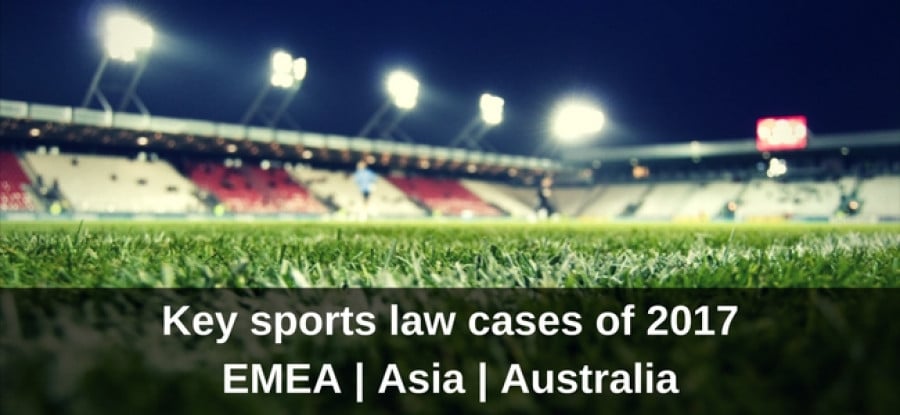Key sports law cases of 2017 - Europe, Middle East, Africa, Asia and Australia
Tuesday, 09 January 2018As we begin the new year, we are running a series of articles reflecting on the key legal issues impacting sport in different jurisdictions and regions around the world in 2017.
For this article we have approached some of the leading sports lawyers in the Europe, Middle East, Africa, Asia and Australia to share their views on what they think was the biggest sports law issues of 2017.
We would like to thank all of the contributors to this article for taking the time out of their busy schedules to share their views with us.
Featured lawyers:
- Brent Nowicki, Managing Counsel and Head of Anti-Doping Division, Court of Arbitration for Sport
- Jack Anderson, Professor of Sports Law, Melbourne Law School
- Nandan Kamath, Principal Lawyer, The Law Offices of Nandan Kamath
- Richard Wee, Partner, MahWengKwai & Associates
- Steve Bainbridge, Head of Sports Law & Events Management, Al Tamimi & Company
- James Kitching, Managing Director, Kitching Sports
- Roshan Gopalakrishna, Sports, Media & Entertainment Lawyer, The Law Offices of Nandan Kamath
- Luca Ferrari, Partner and Global Head of Sports, Withers
- Emilio Garcia, UEFA Head of Disciplinary and Integrity
- Nan Sato, Attorney at Law, Field-R Law Offices
- David Casserly, Partner, Kellerhals Carrard Lausanne/Sion SNC
- Kei Ikuta, Associate at Nagashima Ohno & Tsunematsu
- Cassandra Heilbronn, Senior Associate, MinterEllison
- Josep F. Vandellos, Sports Lawyer
We hope you enjoy the article. If you think there’s anything you would have liked to have seen be mentioned please feel free to tweet us @LawInSport or email us with your suggestions at
Australia
 Jack Anderson
Jack Anderson
Professor of Sports Law, Melbourne Law School
In sports law terms, 2017 was the year of the collective bargaining agreement in Australia. A six-year CBA deal (minimum total value of Aus$1.84 billion) was completed between the AFL Players’ Association and AFL in June 2017. The average player wage in the AFL will increase from Aus$309,000 to Aus$371,000 per annum as a result. An interesting feature of the deal was that player wages were also tied to the industry’s profits for the first time and the CBA entitles players to 28% of any additional AFL revenues and 11.2% of additional club revenues above forecasts. In August 2017, Cricket Australia and the Australian Cricketers' Association agreed a five-year renewed memorandum of understanding worth about Aus $500 million. Two interesting points of note were that the previous memorandum of understanding ended on 1 July, which left 230 of Australia’s 300 elite cricketers both out of contract and without pay for a period. Second, under the deal female player payments increased from Aus $7.5 million to $55.2 million. Finally, and in November, the NRL agreed a 5-year CBA with its players’ representative body leading to a 52% increase in take-home pay for players. An interesting aspect of this deal, and possibly one taken in light of concussion-related litigation fears, was the establishment of a new “Injury Hardship Fund” to support players facing early retirement due to serious injury.
Cassandra Heilbronn
Senior Associate, MinterEllison
The discussion of 2017 for Australia would certainly be around the AFL’s decision on transgender player Hannah Mouncey and the ruling that she was ineligible to play due to her size and strength, even though her hormone levels were within accepted limits. From a legal perspective the ruling showed a considered approach to a delicate and first of its kind issue. There was the added public interest pressure, as well as ensuring the right precedent was set for how matters of this nature should be approached.
The decision to cancel the licence of the Western Force following SANZAAR’s decision to reduce Super Rugby from 18 down to 15 resulted in a Senate Inquiry into the “Future of Rugby Union in Australia”. The Committee report, which was only just released, contained recommendations that ASIC review financial aspects of the ARU based on comments given during the Hearings. The Committee’s Report, from one perspective, has again raised issues of governance in Australian sport. The AOC election and the battle for It will be interesting to see if the review into the integrity of Australia’s sport (announced separately), will touch on the governance issue.
Middle East
 Steve Bainbridge
Steve Bainbridge
Head of Sports Law & Events Management, Al Tamimi & Company
The sporting world in 2017 was witness to a number of seismic events. Of particular note, the IOC’s recent decision to suspend the Russian Olympic Committee for the manipulation of anti-doping rules with respect to the Sochi Games and preparation for the same, ultimately preventing Russia’s participation at the Winter Games in PyeongChang, underscores the importance of getting to grips with wrongdoing and the broader ongoing battle at all levels of sport to assert good governance. This is of key significance in the Middle East with a growing calendar of sports properties – particularly in the form of annual tournaments. Good governance and stability are significant when new events compete for investment and the properties can be subject to frequent, short-term valuations during the first few iterations as rights-holders and investors jockey to optimize events and brands, respectively.
The scope of bidder interest and the ultimate price tag for the IPL’s broadcasting rights are of considerable regional interest – particularly given the UAE is a past host to several IPL matches, the current host to Pakistan’s cricket internationals and an ongoing location for numerous short-form cricket tournaments.
In Kuwait, a new law has been approved as a significant step to help the country lift the international ban on its sports activities. FIFA and the IOC suspended Kuwait in October 2015 over alleged government interference in sports and subsequently dissolved Kuwait's football federation and its Olympic committee. It later set up temporary committees in their place, but FIFA and the IOC refused to recognize those bodies. The new law affirms the independence of sports and will hopefully usher in full participation.
In addition to headline annual sporting events that continue to be a cornerstone of the Middle East calendar, we are seeing – particularly in Bahrain and the UAE – growth and development of smaller, community-based sporting events such as walks, triathlons, cycling events, relays and marathons with multi-level participation tiers that further governmental health initiatives and blend CSR opportunities with public participation.
Asia
Nandan Kamath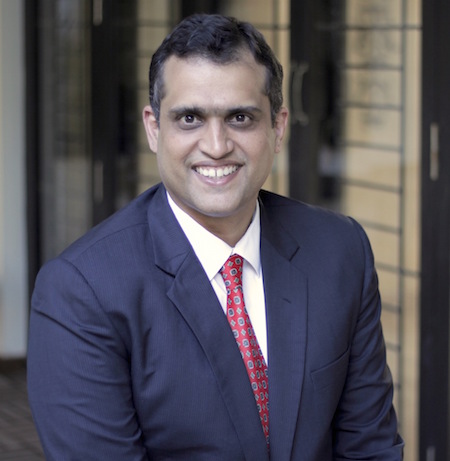
Principal Lawyer, The Law Offices of Nandan Kamath
2017 saw a renewed focus on the legal status of sports governing bodies in India and, more broadly, in Asia. Judicial review of the conduct of sports bodies and a thrust on legal reforms, including proposed legislative codes, have once again brought governance issues into focus. This was in the backdrop of the Supreme Court of India’s mandated reforms of the Board of Control for Cricket in India (BCCI), a process that is still ongoing and has faced a number of obstacles and significant pushback in respect of its implementation. That, however, has not stopped the courts from extending the principles-based governance approach to other sports codes as well – from football to tennis to archery and a number of other governing bodies.
All in all, the narrative is shifting from sports governing bodies which have historically been accepted as “owners” and “controllers” of sport to being seen as bodies (albeit private) exercising “public functions”. This gives their responsibilities more than a tinge of “custodianship”. These developments are likely to have significant long-term impact on the constitution and operation of these bodies, the extent to which they facilitate stakeholder participation (particularly from athletes and fans) and the dynamic notions of “autonomy”. 2017 has shown that national laws will respect “self-regulation” of these bodies but only to the extent they act in the public interest.
 Richard Wee
Richard Wee
Partner, MahWengKwai & Associates
Based on our observation, numerous large issues related to Sports Law in Asia emerged in 2017. Amongst the biggest issue is doping. Asia saw a number of high profile athletes being implicated and failing the doping tests. For example, Manpreet Kaur, the gold medallist women shot-putter at the Asian Athletics Championships 2017, tested positive for using a stimulant that was under the World Anti-Doping Agency’s (WADA) prohibited list.[1] Even the Southeast Asian (SEA) Games held in Kuala Lumpur, Malaysia in August 2017, which had aimed to have zero doping cases, was not spared from this plague.[2]
Sports Integrity is obviously not a new issue in Sports Law, but in Asia, a few scandals related to match-fixing and manipulation in sports came to light. In fact, there were also confirmed cases of match-fixing in which the athletes were punished for their part in manipulation. Just recently, the BBC reported that Pakistan batsman Sharjeel Khan was banned for five years for spot-fixing.[3] While match-fixing is a global issue, investigations and media reports seem to trace them back to organised crime groups in Asia.[4]
Another prevalent issue is the allegations of sexual harassment in sports. 2017 saw the rise of concerted movements by Asian sports authorities to address the menace of sexual harassment in sports. Collaborative and serious discussions have taken place with the aim to stop such a horrid infamy in sports. The recent #MeToo movement saw Hong Kong hurdling champion Vera Lui come to the forefront and address her own experience of sexual harassment in sports.[5] In Malaysia, the National Sports Institute conducted a study about sexual harassment in sports and published the same on their official website on 21 July 2017. This is a welcomed movement to eradicate this undesirable occurrence in sports.[6]
James Kitching
Managing Director, Kitching Sports
On 27 April 2017, the US Department of Justice announced that Mr. Richard Lai, President of the Guam Football Association and member of both the FIFA Audit Committee member and AFC Executive Committee, had pleaded guilty to two courts relating to wire fraud conspiracy in connection with his participation in multiple scheme to accept and pay bribes to soccer officials, and one count of failing to disclose foreign bank accounts.
As set out in the information, Lai pleaded guilty, inter alia, to a scheme in which he received over $850,000 in bribes between 2009 and 2014 from a faction of soccer officials in the AFC region. Lai received those bribes in exchange for using his influence as a soccer official to advance the interests of the faction that bribed him, including by helping officials in that faction identify other officials in the AFC to whom they should offer bribes. The goal of this scheme was for the faction to gain control of the AFC and influence FIFA. Members of the faction have been identified as some of the highest ranking officials in Asian sport.
Lai was banned for life by FIFA on 21 November 2017.
Investigations by FIFA, the IOC, the Asian Football Confederation, and the US Department of Justice remain ongoing.
Roshan Gopalakrishna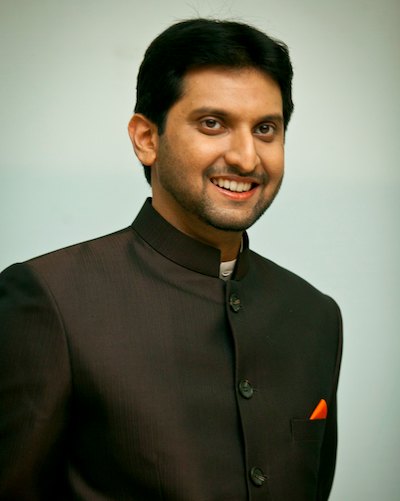
Sports, Media & Entertainment Lawyer, The Law Offices of Nandan Kamath
Judicial intervention continued to play a major role in altering the narrative of sports governance in India. In the first week of January 2017, in an unprecedented move, the Supreme Court of India removed the BCCI’s President and Secretary from their posts for their repeated failure to obey the Court’s instructions and implement the Lodha Committee's recommendations on governance reform. The Court appointed a Committee of Administrators to oversee the functioning of the BCCI (with the BCCI’s CEO) until fresh elections for office-bearers can be conducted as per the recommendations of the Lodha Committee. This Committee went on to supervise the tender process for the largest ever media rights sale in cricket, when Star India acquired the IPL’s global broadcast rights across platforms for US$ 2.55 billion in September 2017. Courts have also similarly intervened in matters relating to functioning of the Archery Association and Football Federation. Judicial intervention has already been sought to extend the remit of the Lodha Committee’s recommendations to all sports federations in India.
 Nan Sato
Nan Sato
Attorney at Law, Field-R Law Offices
Chinese Football Association ("CFA") Announces New Rules on U23 Players and Limits on Transfer Fees
By now, the astronomical salaries and transfer fees paid by Chinese football clubs for big-name international players have become a norm. As a result, an increasing number of foreign players are considering the Far East as a realistic destination where they can get one last big contract.
Alarmed by the skyrocketing amounts paid to a small number of elite players and the stagnation of youth footballer development, the CFA announced two major rule changes in May 2017 to increase the participation of young Chinese players and to limit the amount of transfer fees paid for top-end players.
The Notice Regarding Participation of U23 Players in Super League and League One Matches (“U23 Notice”) requires the clubs to have at least as many under-23 players as foreign players in a match from the start of the 2018 season. A related rule also mandates the clubs to start each match with at least one U23 player on the pitch and another one on the bench.
On the same day that the U23 Notice was issued, the CFA also issued the Notice Regarding Limitations on Transfer Fees which limits the amount of transfer fees that a club can pay to 45 million RMB (6.8 million USD) per foreign player and 20 million RMB (3 million USD) per domestic player. Any club that pays more than these limits must match the transfer fee with a payment of equal value to the CFA’s development fund which goes towards “the development of youth football, supporting community football, and public welfare projects involving football.”[7] This rule technically only applies to the clubs which operate at a loss, but currently all 32 clubs in the Super League and League One are operating at a loss.
The sizable transfer fees are mostly financed by the wealth corporate owners of these Chinese clubs, many of which are large real estate developers, conglomerates, or state-owned companies. Thanks to the football development initiatives of President Xi Jinping, these firms have been able to finance the clubs using money borrowed at extremely low interest rates. The owners of some of these companies use investments in football as a way to win the favor of Mr. Xi. However, the spending spree is not sustainable as it is subject to the risk of sudden changes of political directions.
Although the approach of these industry tycoons cannot be expected to change overnight, there is hope that the new rules will incentivize more clubs to take a long-term approach of developing young players and picking bargains in the global transfer market.
Kei Ikuta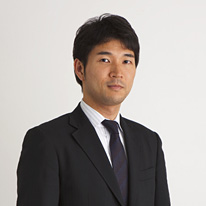
Associate at Nagashima Ohno & Tsunematsu
One of the key sports law issues in Japan in 2017 is a disciplinary case handled by the Asian Football Confederation (“AFC”) concerning the display of a “Rising Sun” flag by spectators who were supporting the 2017 J.League champion, Kawasaki Frontale (“Frontale”), at an AFC Champions League match. Frontale was playing a group-stage match against a South Korean club, Suwon Bluewings (“Bluewings”) at Bluewings’ home stadium in South Korea on 25 April 2017. Just before kick-off, two Frontale supporters raised the controversial flag, which was used by the Imperial Japanese Army during World War II, in the away stand but the Bluewings’ security officer quickly stopped them. Later, this incident led Bluewings supporters to infiltrate the away stand where Frontale supporters were seated and caused a post-match riot between supporters of both clubs.
On 4 May 2017, the AFC Disciplinary and Ethics Committee imposed on Frontale (1) a fine of US$15,000 and (2) a suspended penalty of one home game without spectators on the basis that the display of the “Rising Sun” flag “offended the dignity of: (i) home team supporters; and/or (ii) people of South Korean origin, through the use of a contemptuous, discriminatory or denigratory action concerning a political opinion and/or national origin” (Articles 58 and 65 of the AFC Disciplinary and Ethics Code). Frontale appealed this decision to the AFC Appeal Committee arguing, inter alia, that the “Rising Sun” flag is not discriminatory or political and that, in fact, the flag is used for domestic J1 League matches as well. However, on 20 July 2017, the AFC Appeal Committee dismissed the appeal and upheld the decision of the Disciplinary and Ethics Committee (Frontale did not make a further appeal to the CAS).
This case suggests that, even if supporters do not intend to offend an opponent’s club or its supporters by raising a controversial flag, that action could be regarded as an offence and the club could be penalised, taking into account the perspective of other relevant parties. After this incident, J.League as well as Frontale have taken the position that they will encourage spectators not to display any controversial flags in football stadia.
Europe
 Luca Ferrari
Luca Ferrari
Partner and Global Head of Sports, Withers
Federico Venturi Ferriolo
Associate, Withers
Like most sports lawyers in Europe, we were quite interested in UEFA's decision on the controversial new case of common ownership involving the German club RasenBallsport Leipzig ("RBL") and the Austrian club FC Red Bull Salzburg ("FCS"), as both clubs had qualified on sporting merits for the 2017/2018 edition of the UEFA Champions League.
In short, the Chief Investigator of the UEFA Club Financial Control Body referred the case to the Adjudicatory Chamber having concluded that RBL and FCS could not participate in the same competition based on the 'test of decisive influence' under article 5 of the Regulations of the UEFA Champions League (UCLR) and suggesting that RBL should be denied admission. Article 5(c) of the UCLR states that "no individual or legal entity may have control or influence over more than one club participating in a UEFA club competition…" The stated purpose of such prohibition is to ensure integrity of the UEFA club competitions. Applying the “decisive influence” test, Red Bull was initially found to be able to exert control or influence over FCS as well as RBL, through Red Bull's sponsorship, finance and governance links to the clubs.

However, from the latest compliance report carried out by UEFA, it has been proved that FCS had taken measures to attempt to reduce the possibility of Red Bull's 'decisive influence'. Taking all such actions into consideration, UEFA eventually concluded that there was no “decisive influence” from Red Bull towards FCS, and in turn, RBL. Both clubs were permitted to take part in the Champions League.
The following points made by the Adjudicatory Chamber may be of guidance in similar future cases: (i) nothing short of a legal power to control decision making is required under these provisions; (ii) the benchmark for establishing decisive influence is a high one, requiring the ability to direct the decision making of both clubs; (iii) the burden is on the CFCB Investigatory Chamber to prove that Red Bull has decisive influence on both Clubs.
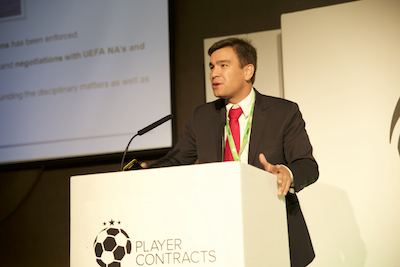 Emilio Garcia
Emilio Garcia
Head of Disciplinary and Integrity, UEFA
The CAS decision on the Belgium club RFC Seraing can be considered one of the key sports law issues in 2017. By means of this relevant decision, the Court of Arbitration for Sport validates the new TPO regime established by FIFA in 2015. This CAS award is the first decision that unreservedly recognises the compatibility of the ban on TPO with EU law.
 Brent Nowicki
Brent Nowicki
Managing Counsel and Head of Anti-Doping Division, Court of Arbitration for Sport
Sports administrators and legal practitioners should keep a very watchful eye on allegations of sexual misconduct and bullying in sport. As the world has recently seen, this issue (at least with respect to sexual misconduct) has caused a tidal wave of accusations, terminations, and varying legal implications in non-sport capacities (Hollywood, politics, etc.) in the USA. Sport has not been completely immune to this issue as we have seen significant allegations, for example, in USA gymnastics and swimming. It seems plausible that more allegations could surface in sport at every level (in Europe and elsewhere) in the coming year. In the USA, several national governing bodies have developed safe sport regulations and procedures. I suspect we will see more European NGBs, IFs, NOCs, etc. establish safeguards for its athletes, and perhaps more importantly, provide avenues for redress to those who have been victims of these issues.
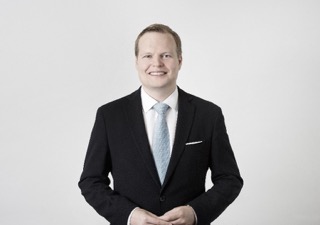 David Casserly
David Casserly
Partner, Kellerhals Carrard Lausanne/Sion SNC
The very recent European Commission ruling regarding the competition rules of the International Skating Union naturally springs to mind, as it is currently being widely discussed, but time will tell whether it is as significant a ruling as some commentators are suggesting. My own view is that its description as the most significant ruling since Bosman may be wide of the mark.
The IOC’s recent decisions regarding the disqualification of athletes from Sochi is a very significant group of cases, although they have not yet reached their final conclusion before the CAS, which is something that we will be working on in the coming weeks.
Josep F. Vandellos
Sports Lawyer
The six-year cooperation agreement reached between FIFA, FIFPRO, the World leagues forum and the ECA that puts an end to the competition law complaint lodged by FIFPRO against the FIFA global transfer system with European Commission in 2015 challenging the current transfer regulations anticompetitive for they prevent fair competition on the football market.
Also, it has been very important the entering into force on 15 June 2017 of the new UEFA Disciplinary Regulations including a new sub-chapter on ethical provisions and an extended and comprehensive Title on procedural law.
In Spain, the Decision of 21 April 2017 of the Consejo Superior de Deportes (Supreme Sports Council) confirmed that the requirements under article 19 of the FIFA Regulations on the Status and Transfer of Players concerning the international transfers of minor football players are not aligned with national law and therefore, cannot impede the registration of player who is a legal resident in Spain.
References|closed
[1] PTI, ‘Manpreet Kaur, who won shot-put gold at Asian Athletics Championships, fails dope test,’ The Indian Express, 19 July 2017, https://indianexpress.com/article/sports/sport-others/asian-champion-shot-putter-manpreet-kaur-fails-dope-test-4757593/, accessed 6 December 2017.
[2] ‘SEA Games medallist tests positive for doping,’ The Star Online, 5 September 2017, https://www.thestar.com.my/sport/other-sport/2017/09/05/sea-games-medallist-tests-positive-for-doping/, accessed 6 December 2017.
[3] ‘Sharjeel Khan: Pakistan batsman banned for five years after spot-fixing inquiry’, BBC, 30 August 2017, https://www.bbc.com/sport/cricket/41092749, accessed 6 December 2017.
[4] Z Yusof, ‘Analysts: Global match-fixing has strong Asian links’, Straits Times Singapore, 19 September 2017, https://www.straitstimes.com/singapore/courts-crime/analysts-global-match-fixing-has-strong-asian-links, accessed 6 December 2017.
[5] ‘https://www.scmp.com/news/hong-kong/law-crime/article/2122203/coach-sexually-assaulted-her-when-she-was-13-hong-kong’, South China Morning Post, 30 November 2017, https://www.scmp.com/news/hong-kong/law-crime/article/2122203/coach-sexually-assaulted-her-when-she-was-13-hong-kong, accessed 6 December 2017.
[6] S Fathynah SS., ‘Sexual Harassment in Sports: Are We Safe?’ 21 July 2017, https://www.isn.gov.my/en/sexual-harassment-in-sport-are-we-safe/, accessed 6 December 2017.
[7] 'Notice on limiting high-priced signings', Chinese Football Association, https://www.fa.org.cn/bulletin/file/2017-05-24/520199.html
- 2014 Sochi Winter Olympic Games Africa Anti-Corruption Anti-Doping Asia Asian Football Confederation (AFC) Australia Australian Ant-Doping Agency (ASADA) Australian Football League Bahrain Board of Control for Cricket in India (BCCI) Bribery Broadcasting China Chinese Football Association (CFA) Collective Bargaining Agreement (CBA) Commercial Consejo Superior de Deportes (Supreme Sports Council) Court of Arbitration for Sport (CAS) Court of Arbitration for Sport Ad Hoc Division (CAS AHD) Cricket Cycling Data Europe FIFA FIFPro Football Governance Image Rights India Indian Premier League (“IPL”) Integrity Intellectual Property International Cycling Union (UCI) International Olympic Committee (IOC) Japan Kuwait Malaysia National Anti-Doping Agency (NADA) National Rugby League (NRL) Nigeria Olympic Olympic Games Rio de Janeiro 2016 Paralympic Player Transfers Pyeongchang 2018 Winter Olympics Regulation Rugby Russia Sponsorship Sportradar Swimming Tokyo 2020 Trademarks UEFA UEFA Champions League World Anti-Doping Agency (WADA)
